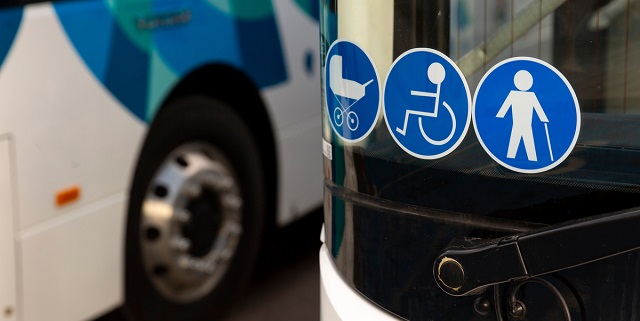Since the early days of the COVID-19 pandemic we’ve become accustomed to the heroics of so many frontline workers going above and beyond the call of duty. The determination of healthcare workers who have been fighting this battle for over 3 months now is well known, but the contributions of other workers in many other areas is equally critical to providing the essential services we need each day.
Consider all those who’ve worked tirelessly to keep grocery stores stocked, or those helping to keep public utilities operating during these difficult times. Add to this list, public transit workers who continue to put their well-being at risk to help people get to where they need to be even during the worst of the crisis.
In this Oaken Blog feature, we’re pleased to tell you about two such individuals who operate buses for the Wheel-Trans Division of the Toronto Transit Commission (TTC). The TTC is the largest public transit system in Canada and operates a fleet of surface buses and streetcars as well as a city-wide subway system that serves a combined daily ridership of more than 1.7 million weekday passengers.
While most of us have been able to limit our public exposure during this crisis, transit operators are still clocking-in each day to help those who need special assistance get to important things including doctor appointments. The actions of these people in the face of this pandemic is truly extraordinary and this is most definitely the case for those employees serving in the TTC’s Wheel-Trans division.
Wheel-Trans operates special vehicles to provide a unique pick-up and drop-off service for those with disabilities that make it difficult for them to use the TTC’s main service. Many Wheel-Trans customers are seniors who rely on the dedicated individuals who operate these buses to help them with their important errands. Each year, Wheel-Trans provides over 4 million “door-to-door” trips for the more than 42,000 people currently registered for this program.
Like other Wheel-Trans operators, Brian has worked through the COVID-19 pandemic to ensure this important service remains available. Despite the potential risks, operators routinely help people board and exit the vehicle placing them in close contact with many different people each day.
The TTC has provided operators with face shields and masks, as well as gloves and hand sanitizer, but it is difficult to eliminate entirely the potential for the virus to spread.
“I’m not too worried for myself,” explains Brian, a Wheel-Trans operator for the past 5 years. “I’m more worried about some of the older passengers because so many older people have become very sick.”
Keith, a long-time Wheel-Trans driver echoes this sentiment.
“I’m currently operating what is known as a community bus that serves several retirement homes. We take residents to their appointments and help them get to other places and for many, we are their only option for getting around.”
“Many of our passengers have mobility issues so they do rely on us to provide this service,” adds Brian.
While the elderly are particularly vulnerable, younger people with certain pre-existing health conditions are also more susceptible to the COVID-19 virus.
“I’m diabetic so I do worry that I could be at a greater risk,” notes Keith.
Given his condition, few could fault Keith for requesting a change with his employer that would see him less exposed to the public. However, for Keith, this was never a consideration.
“We really get to know the people on our routes and we want to be there for them,” he explains. “They count on us to help them and I’m glad we can still be there for them even with everything that’s going on right now.”
There is no question that for the people relying on the Wheel-Trans busses, this is an essential service. It is also clear that despite the potential risk to their own personal safety, those that strive to make sure the busses are available for vulnerable members of the community deserve a great deal of respect and gratitude.
And while they may not consider their actions to be anything special, the people depending on frontline workers like Brian and Keith to help them during this crisis, certainly feel differently.
“We do get a lot of ‘thank yous’ when we see our passengers,” says Keith, “and it does feel good to know that what you’re doing makes a real difference for someone who needs your help.”




 Travel and lifestyle
Travel and lifestyle